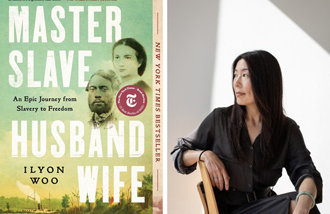Experienced Poet Tells about Life in 10th Poetry Collection
Experienced Poet Tells about Life in 10th Poetry Collection
Posted February. 22, 2008 03:37,

Experienced Poet Tells about Life in 10th Poetry Collection
I would ride on the camel to the underworld/ ( ) When they ask about the world, would say as if I hadnt seen anything/ ( ) As if I had forgotten sorrow and pain. (An extract from poem The Camel)
Shin Gyeong-lims life might have been like a camel. The 73-year-old poet has refused to stay in one place for any moment and been always prepared to hit the road. When I met him on Wednesday, he said, I travel, go hiking and give special lectures (as an endowed chair professor of Dongguk University) at times. He said he does not sit and read books at home all the time.
He published his 10th poetry collection The Camel (published by Changbi Publisher Co.). It came six years after he released The Horn. His friends said that they could feel the power of his 52-year life as a poet. The last part of his title poem The Camel stings us. He says he will ride the camel when he goes to the underworld after death and when he comes back to this world.
When I come back to this world/ I will carry the foolest one in the world on my back./ I will choose the most pathetic one/ who has not enjoyed this world at all/ as a fellow companion.
In particular, the poems he wrote while traveling Turkey, Nepal, the U.S. and France are outstanding in the collection. They were written on the road while his shoes got worn-out/ and faded/ by rain, winds, dust, and smoke. (extract from My Shoes Are)
He said, I went abroad often recently. I was kind of confined to the nation. I seldom traveled outside of Korea. After looking around other countries, I realized that life is no different wherever you live, especially something like the way the poor live and the kindness among people.
The poet has said that the most critical thing is the literariness, whenever he had a chance, including one of his prose in the collection.
He said, After overcoming severe criticism like a hard-blowing wind that a poem that does not deal with unification or labor issues cannot be a good one of the times, he became motivated to write poems and they became livelier.
Of course, poems are created in the imagination of the society that they belong to, but above all, the most important quality is beauty which can impress many people, says Shin. So his new poems that are less powerful and comfortable are more touching.
In the new collection, he writes, The world is worth living because it is joyful and sad (On My Way Home) and It is beautiful because I have accomplished nothing, and it is beautiful because there is nothing left, and it is beautiful because I have nothing to leave behind (The House Is Beautiful). Saying how nothing can be beautiful is possible because he is an experienced graying poet. When I asked if a poet writing poems out of inspiration is a special person, he replied mischievously.
Sluggards write poems.
As I reacted surprised, he continued to explain, Are poems really necessary for living? Thats why good students cannot write them. Poems do not show the world as it has been. It shows it differently.
kimjy@donga.com







